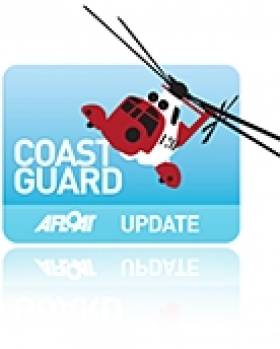Displaying items by tag: Leeson Lane
New World Class Coast Guard National Marine Operations Centre Opens
This morning Minister for Transport Noel Dempsey TD opened the new Irish Coast Guard National Marine Operations Centre in the Irish Coast Guard headquarters, Leeson Lane, Dublin 2.
The Irish Coast Guard National Maritime Operations Centre houses Ireland’s Maritime Rescue Coordination Centre tasked with looking after our day-to-day emergency search and rescue response needs. It also plays an important coordinating role in dealing with pollution incidents in our waters, salvage and ship casualty response, requests from ships in difficulty and control and surveillance of passing shipping and maritime infrastructure off our coast.
Speaking today Minister Dempsey said; "The opening of this centre is a very significant milestone in the development of our national maritime infrastructure. Today we are launching a new world class digital technology platform for the Irish Coast Guard. For the first time all Coast Guard sites in Ireland will be connected to a national IT system that will help better coordinate search and rescuer missions. We now have a single 24/7 international contact point on ship and port security, coast guard to coast guard requests, marine assistance services, satellite alerts and crisis response in the maritime domain. It is a vital hub that co-ordinates our response to save lives and to protect our waters."
Welcoming the formal opening today, Director of the Irish Coast Guard Chris Reynolds said: "The opening today of our new centre will considerably improve the Coast Guards ability to deliver more effective co-ordination of the national marine search and rescue (SAR) service. The systems under development here will also assist in gathering information and support risk assessments for decision making in respect of vessels seeking places of refuge and providing a vessel traffic monitoring and information service for our coastal areas. It has the technical capacity to independently run any type of incident anywhere off our coast. "
Minister Dempsey concluded: "The vision and determination shown in the past decade by the Irish Coast Guard in advancing our Search and Rescue services is an important reflection of the hard work and commitment of all parties to this project despite the current difficult financial times. In partnership with the International Maritime Organisation, the European Maritime Safety Agency, Bonn Agreement and the EU Civil Protection Mechanism, this centre reflects Ireland's commitment to the single point of contact concept for our national Search and Rescue, ship casualty and marine pollution response needs."





























































